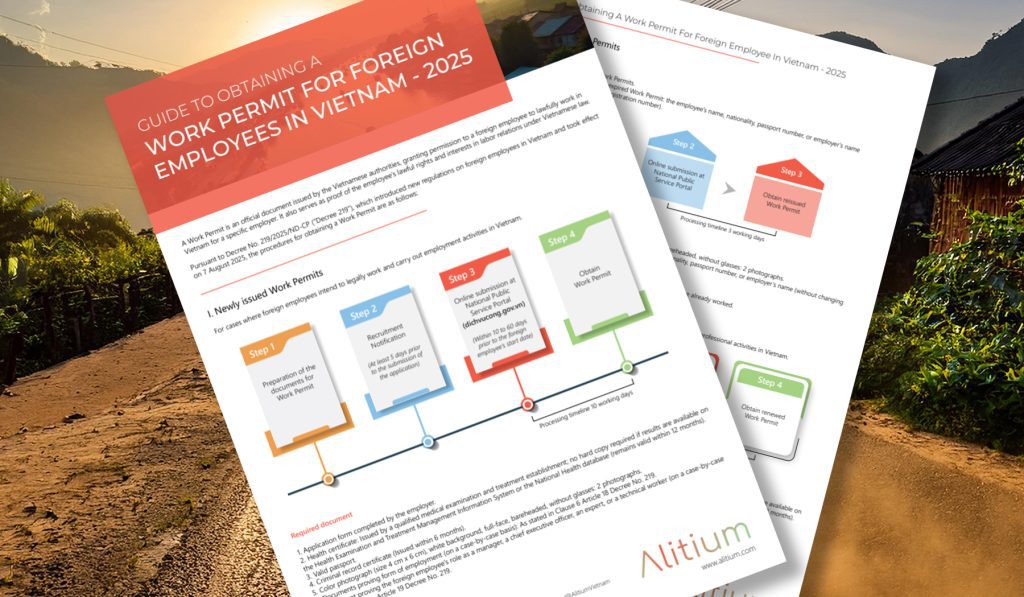Leveraging Short-Term Foreign Loans to Repay Long-Term Obligations in Vietnam – Is it feasible?
Foreign loans are a prevalent method for foreign investors to channel funds into their Vietnamese entities. Typically sourced from offshore affiliates, these loans are formally termed “foreign loans without government guarantee” under Vietnamese law. The significance of this terminology is that the Vietnamese government does not underwrite the repayment of these loans, and therefore are simply commercial loans from a foreign source. Within the scope of this Article, “foreign loans” refer to “foreign loans without government guarantee”.
Vietnam categorizes foreign loans based on their duration. Loans of up to 12 months are classified as “short-term”, while those exceeding this threshold are considered “medium and long-term”. It’s important to note that while the law distinguishes between “short-term” and “medium and long-term” loans, it does not explicitly define “medium-term” loans and “long-term” loans. For practical purposes, many businesses consider loans between 12 months and 5 years as medium-term and those beyond 5 years as long-term, aligning with the State Bank of Vietnam’s loan classification guidelines for commercial banks.
The regulatory framework for foreign loans varies significantly based on their term. Short-term loans generally require less administrative burden, with minimal documentation and no mandatory registration with the State Bank of Vietnam. Conversely, long-term loans necessitate a more comprehensive approval process involving detailed documentation and registration with the State Bank.
Feasibility of Using a Foreign Short-Term Loan to Repay a Foreign Long-Term Loan for a Vietnamese Company?
Getting back to the question whether a company in Vietnam can use a foreign short-term loan to repay for a foreign long-term loan that is due, the answer is “maybe” – a 50/50 outcome.
Positive View (50%)
Under Circular 12/2024/TT-NHNN, which governed foreign loans without the Government’s guarantee until August 14, 2023, borrowers were explicitly prohibited from using short-term loans for long-term purposes. However, Circular 08/2023/TT-NHNN, effective from August 15, 2023, does not explicitly state this prohibition, leaving room for interpretation. A literal reading of Circular 08 could imply that short-term loans may be used to repay foreign long-term loans, a practice previously accepted by certain banks.
Negative View (50%)
Conversely, the nature of short-term loans and regulatory contexts beyond Circular 08 suggest that using them to repay or restructure long-term loans might not be feasible. Specifically:
Article 17.1 of Circular 08 stipulates:
- The borrower may only use short-term foreign loan capital for restructuring its foreign debts and paying its short-term debts payable in cash (excluding outstanding principal amounts of domestic loans).
- Short-term debts payable are those incurred during the execution of investment projects, business plans, or other projects, as defined by current regulations and corporate accounting guidelines.
Circular 200/2014/TT-BTC,
According the guidance in Circular 200, loans maturing within 12 months at the time of reporting are classified as “short-term payable.” This interpretation affects the application of Article 17.1. If “short-term debts payable” in (ii) is interpreted to include all purposes in section (i), then a short-term loan it would seem is not to able to be used to repay a long-term loan. However, if it is interpreted to only include the latter part of section (i)—paying short-term debts payable in cash—then a short-term loan could potentially be used to repay a long-term loan.
From an accounting and financial perspective, interpreting that short-term loans cannot be used to repay long-term loans seems more logical and aligns with regulatory intent.
Conclusion
In conclusion, the ability of a Vietnamese company to use a foreign short-term loan to repay a foreign long-term loan due remains ambiguous under the current regulatory framework. While Circular 08/2023/TT-NHNN does not explicitly prohibit this practice, the interpretation of its provisions, especially in conjunction with Circular 200/2014/TT-BTC, suggests caution.
On one hand, a literal interpretation of Circular 08 could imply that short-term loans might be used for this purpose, as was previously accepted by some banks. On the other hand, the nature of short-term loans and the broader regulatory context indicate that this might not be a feasible or advisable practice. The prudent approach, considering the accounting and financial perspectives, leans towards the interpretation that short-term loans should not be used to repay long-term loans.
Ultimately, Vietnamese companies with foreign loans should seek clarity from relevant authorities or consult with legal and financial advisors to ensure compliance with the prevailing regulations and avoid potential risks.
Phuong Vo is Managing Partner at Alitium Vietnam, providing market entry and professional support for foreign investors in Vietnam. Contact Phuong via Alitium.com for further assistance and advice.








